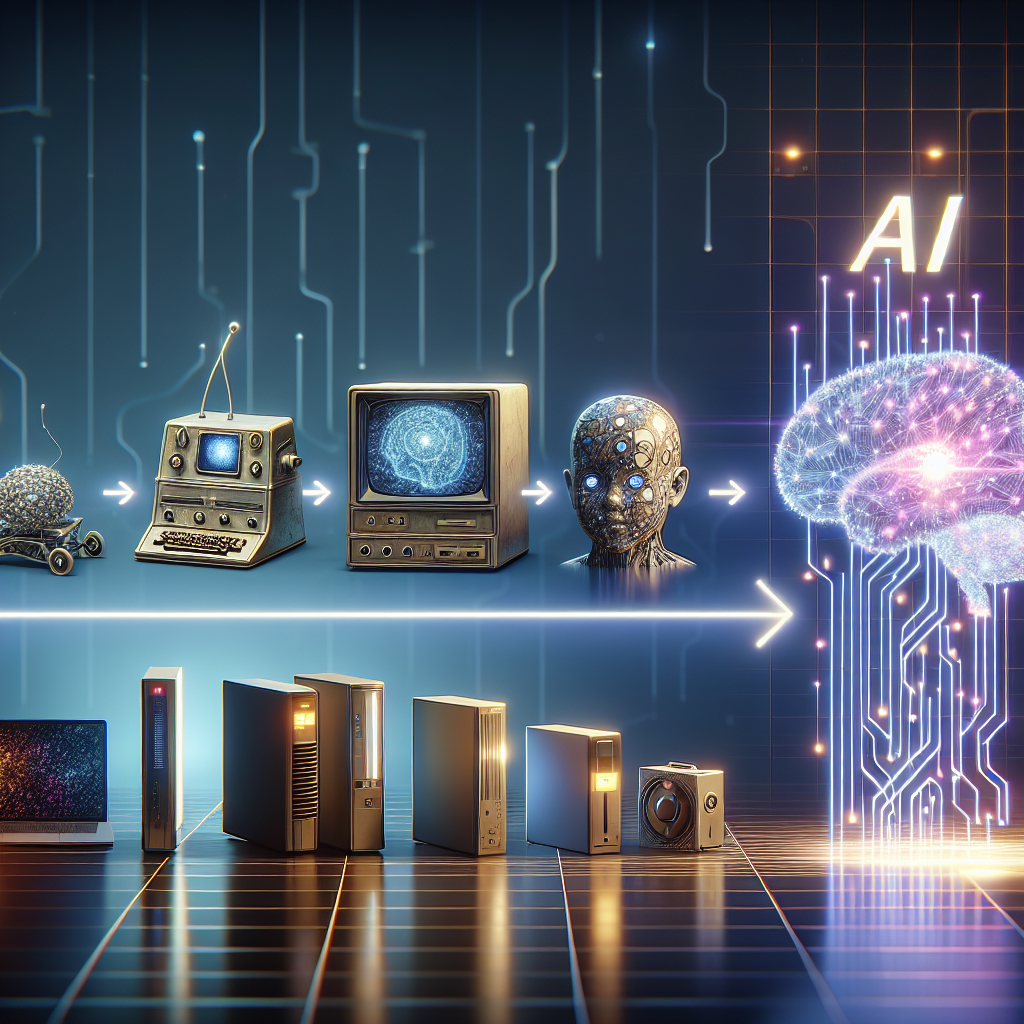The Evolution of AI: How AGI is Paving the Way for a Smarter Future
Artificial Intelligence (AI) has come a long way since its inception, and with the development of Artificial General Intelligence (AGI), the possibilities for the future are endless. AGI is a type of AI that possesses the ability to understand, learn, and apply knowledge across a wide range of tasks, similar to human intelligence. This advancement in AI technology has the potential to revolutionize industries, improve efficiency, and enhance the quality of life for people around the world. In this article, we will explore the evolution of AI, the significance of AGI, and how it is paving the way for a smarter future.
The Evolution of AI
AI has been around for decades, but it has made significant advancements in recent years due to the increase in computational power, access to big data, and advancements in machine learning algorithms. The early stages of AI focused on narrow tasks, such as playing chess or recognizing speech, but as technology progressed, so did the capabilities of AI systems.
Machine learning, a subset of AI, has played a crucial role in the evolution of AI. Machine learning algorithms enable AI systems to learn from data, identify patterns, and make predictions without being explicitly programmed. This has allowed AI systems to become more efficient and accurate in performing tasks, leading to widespread adoption in various industries, including healthcare, finance, and transportation.
The next step in the evolution of AI is the development of AGI. AGI aims to create AI systems that can perform a wide range of tasks, learn from experience, and adapt to new situations, similar to human intelligence. While current AI systems excel at specific tasks, they lack the ability to generalize and apply their knowledge across different domains. AGI seeks to bridge this gap and create more versatile and intelligent AI systems.
The Significance of AGI
AGI has the potential to transform industries and society in ways we have never imagined. With the ability to understand, learn, and apply knowledge across a wide range of tasks, AGI can revolutionize how we work, communicate, and live. Here are some key ways AGI is paving the way for a smarter future:
1. Increased Efficiency: AGI can automate repetitive tasks, analyze large datasets, and make predictions with high accuracy, leading to increased efficiency in various industries. This can save time, reduce costs, and improve productivity, allowing businesses to focus on more strategic tasks.
2. Enhanced Decision-Making: AGI can process vast amounts of data, identify patterns, and make informed decisions in real-time. This can help businesses make better decisions, optimize operations, and seize opportunities that may have been missed with traditional methods.
3. Personalized Experiences: AGI can analyze individual preferences, behavior, and interactions to provide personalized experiences for customers. This can improve customer satisfaction, loyalty, and retention, leading to a more personalized and engaging user experience.
4. Improved Healthcare: AGI can analyze medical records, imaging data, and genetic information to diagnose diseases, develop treatment plans, and predict outcomes with high accuracy. This can improve patient care, reduce healthcare costs, and save lives by providing timely and accurate medical interventions.
5. Sustainable Development: AGI can optimize resource allocation, energy consumption, and waste management to promote sustainable development and reduce environmental impact. This can help address global challenges such as climate change, pollution, and resource depletion, leading to a more sustainable and resilient future.
FAQs
Q: What is the difference between AI and AGI?
A: AI refers to any technology that enables machines to perform tasks that typically require human intelligence, such as speech recognition, image processing, and decision-making. AGI, on the other hand, refers to AI systems that possess the ability to understand, learn, and apply knowledge across a wide range of tasks, similar to human intelligence.
Q: How is AGI different from narrow AI?
A: Narrow AI, also known as weak AI, refers to AI systems that are designed to perform specific tasks, such as playing chess, recognizing speech, or driving a car. AGI, on the other hand, aims to create AI systems that can perform a wide range of tasks, learn from experience, and adapt to new situations, similar to human intelligence.
Q: What are some examples of AGI applications?
A: Some examples of AGI applications include autonomous vehicles, personalized healthcare, intelligent virtual assistants, and smart cities. These applications leverage the capabilities of AGI to automate tasks, make informed decisions, and provide personalized experiences for users.
Q: What are the challenges of developing AGI?
A: Some of the challenges of developing AGI include ensuring ethical and responsible use of AI, addressing bias and fairness in AI systems, and ensuring transparency and accountability in decision-making. Additionally, developing AGI requires significant computational power, access to large datasets, and advancements in machine learning algorithms.
Q: What are the potential risks of AGI?
A: Some potential risks of AGI include job displacement due to automation, loss of privacy and security, and misuse of AI for malicious purposes. It is important to address these risks and ensure that AGI is developed and deployed responsibly to maximize its benefits and mitigate potential harm.
In conclusion, the evolution of AI, particularly the development of AGI, is paving the way for a smarter future. With its ability to understand, learn, and apply knowledge across a wide range of tasks, AGI has the potential to revolutionize industries, improve efficiency, and enhance the quality of life for people around the world. By harnessing the power of AGI responsibly and ethically, we can create a more intelligent, sustainable, and inclusive future for all.

